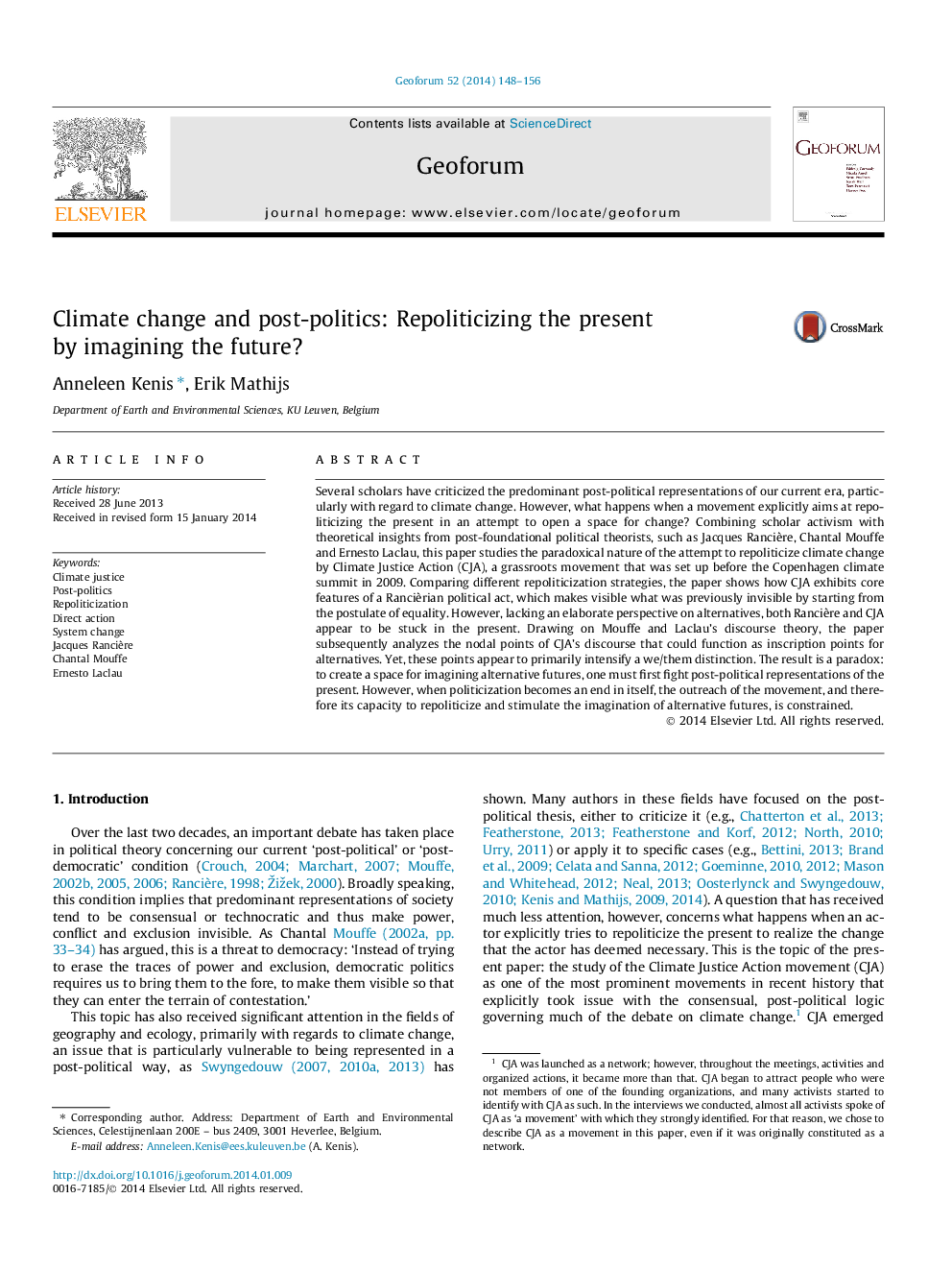| Article ID | Journal | Published Year | Pages | File Type |
|---|---|---|---|---|
| 5074077 | Geoforum | 2014 | 9 Pages |
Abstract
Several scholars have criticized the predominant post-political representations of our current era, particularly with regard to climate change. However, what happens when a movement explicitly aims at repoliticizing the present in an attempt to open a space for change? Combining scholar activism with theoretical insights from post-foundational political theorists, such as Jacques Rancière, Chantal Mouffe and Ernesto Laclau, this paper studies the paradoxical nature of the attempt to repoliticize climate change by Climate Justice Action (CJA), a grassroots movement that was set up before the Copenhagen climate summit in 2009. Comparing different repoliticization strategies, the paper shows how CJA exhibits core features of a Rancièrian political act, which makes visible what was previously invisible by starting from the postulate of equality. However, lacking an elaborate perspective on alternatives, both Rancière and CJA appear to be stuck in the present. Drawing on Mouffe and Laclau's discourse theory, the paper subsequently analyzes the nodal points of CJA's discourse that could function as inscription points for alternatives. Yet, these points appear to primarily intensify a we/them distinction. The result is a paradox: to create a space for imagining alternative futures, one must first fight post-political representations of the present. However, when politicization becomes an end in itself, the outreach of the movement, and therefore its capacity to repoliticize and stimulate the imagination of alternative futures, is constrained.
Related Topics
Social Sciences and Humanities
Economics, Econometrics and Finance
Economics and Econometrics
Authors
Anneleen Kenis, Erik Mathijs,
